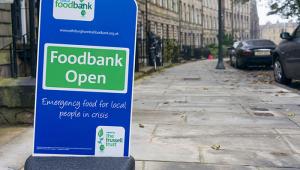Amongst 2,000 people across Britain interviewed online last month, 33% felt they could influence local authorities’ economic policies but only 22% believed they had sway over the government’s economic decisions.
Building a Public Culture of Economics - released by the Royal Society of Arts on Tuesday, conducted with consultancy Populus – suggested a “strong democratic discourse” about economics was needed.
“Conversations about the economy starts at home,” the report stated. “It is essential to meet people where they are; to proceed from people’s everyday experience of the economy through work, at play and in their communities”.
Andy Haldane, the Bank of England's chief economist, said the report affirmed “the importance of all UK institutes engaging with citizens”.
The report found people in the North East of England were the most disillusioned with only 13% believing they have any influence over central government economic policy.
In the same region 42% believe that they have an influence on local councils.
Because people felt they had more influence locally, the report suggested the most “fruitful domain for applying deliberative democracy” might be at local and regional level.
The report also found just 3% of the people interviewed felt they had “a lot” of influence over Local Economic Partnerships – unelected bodes, set up to come up with local priorities in areas such as skills.
LEPs should take “radical action” to improve, the RSA said, and suggested this could be done through a ‘local economic jury service’.
The proposal is people would be called on to mandatorily serve on a panel for a specific period to influence economic decisions, similar to the system of citizens being called up for jury service.
Tony Greenham, director of economics at the RSA, said: “Councils can do much more to engage citizens and rebuild trust, especially as they agree devolution deals.
“Local Enterprise Partnerships in particular as unelected bodies must work harder to involve ordinary people, such as through ‘local jury service’, if they are going to secure a real mandate.”
The study also showed 38% of citizens in London felt they had control over institutions such as the Bank of England, the Treasury and local high street banks.
Across Britian, 72% believed that they had either not very much or no influence over how central government is handling Brexit.
The report was the final publication released in a two-year qualitative study to engage a group of citizens in economic policy, called the Citizens Economic Council.











